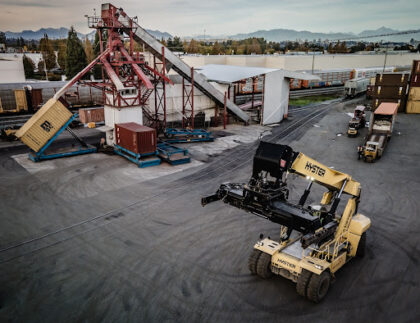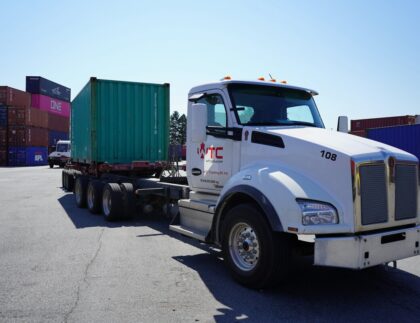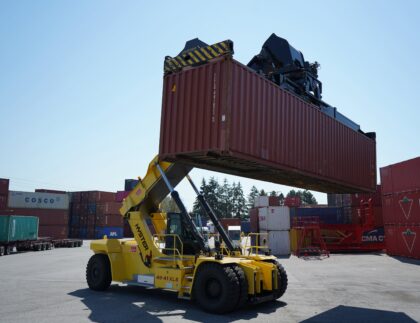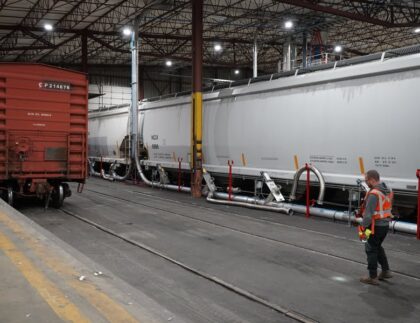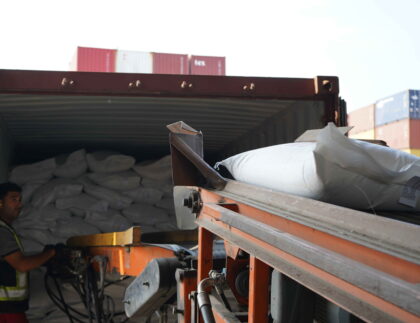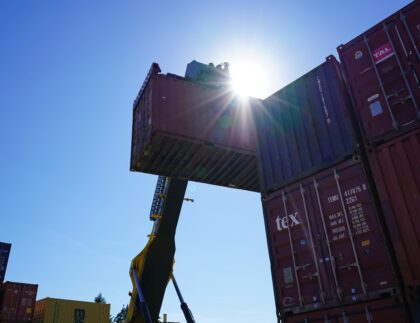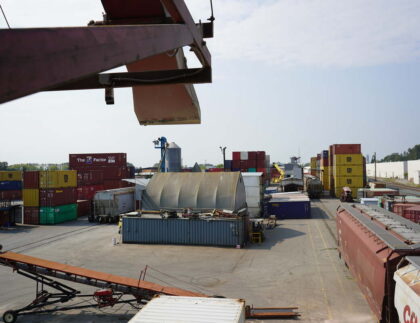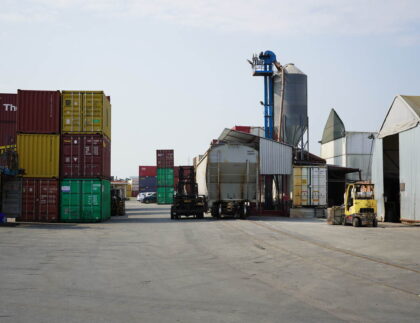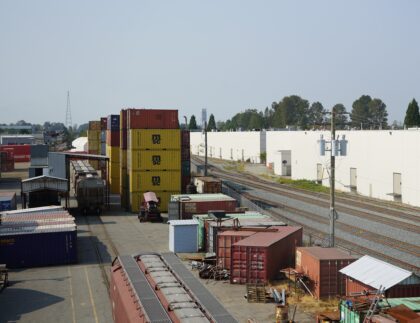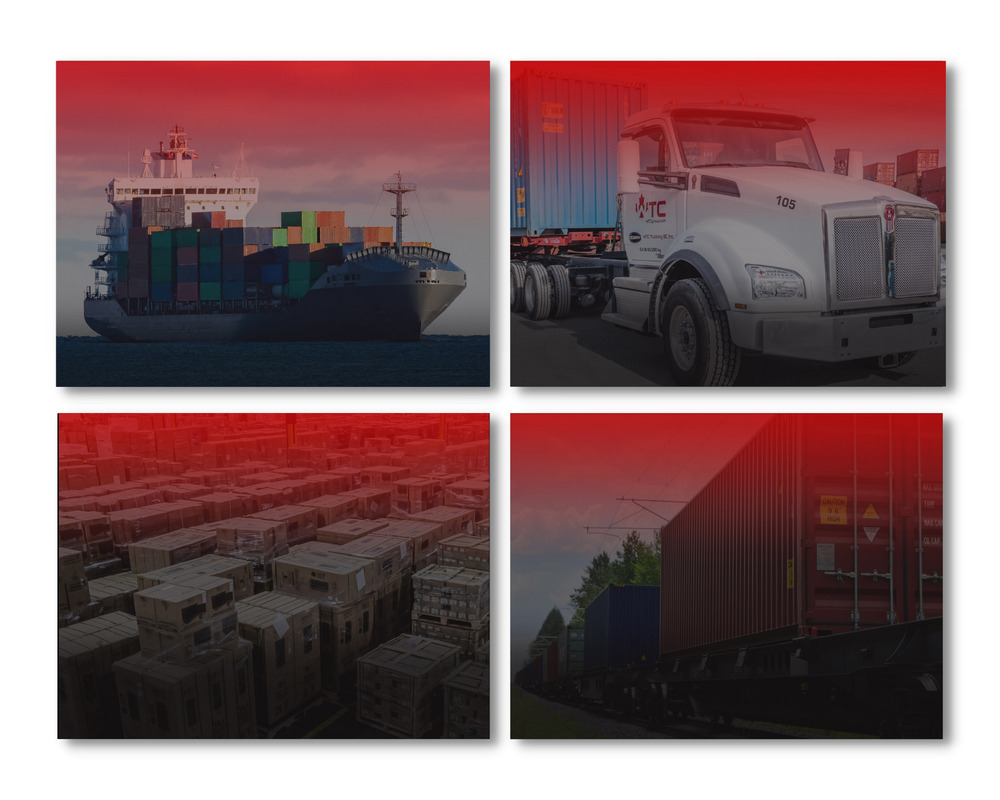
End-to-end logistics impact the entire supply chain, from product design to delivery to customer service. WTC Group provides logistics services in not only British Columbia, but the entire country. As part of our ongoing support for our clients in special grains and crops, plastics, and lumber, we have put together a guide for businesses looking for essential information on end-to-end logistics and how to choose reliable, trustworthy partners.
In this expert guide, we will explore how to optimize your logistics in three important areas, all of which are handled by WTC Group, including:
- Procurement
- Transportation
- Warehousing operations
To illustrate these processes further, we’ll use three essential commodities:
- Grains and Crops
- Plastics
- Lumber and Wood
Keep reading our insider’s look at end-to-end logistics.
Procurement Directly Affects Your Bottom Line
Reliable procurement can make or break your supply chain operations for many reasons, including:
Budget: It takes up a good portion of your annual budget, so it's important to take advantage of economies of scale and keep costs down.
Supply Chain Wins or Woes: A constant flow of goods can help you deliver your products to customers in a timely and efficient manner. Supply chain breakdowns disrupt your operations and diminish customer confidence in your company.
Long-term business strategy: Small and medium-sized companies must do an even better job at managing procurement to compete in the Canadian and global economies. It all starts with the right procurement strategy.
The end-to-end procurement process starts with an agreement between suppliers and partners who deliver the products to customers. It's important to have a cohesive approach to your procurement process. It may help to map out the role of stakeholders in different departments to keep everyone focused on the business goals that deal with procurement and supply chain management.
Incorporate every step of the procurement process in your review, including the following:
- Product Need and Request
- Budget Approval
- Receive and Approve Quotes
- Negotiation and Contract Reviews
- Receipt of Goods
- Invoice and Delivery Note Matching, Invoice Approval
- Payment
- Record Keeping
Should You Outsource Procurement?
You can streamline your procurement process and save costs by outsourcing it to a third-party provider. At WTC Group, we come to your front door and pick up whatever you need moved. We also get it to the final destination in the timeframe expected by both you and the recipient.
Here are some of the benefits of outsourcing your procurement:
Streamlined process
Reduced number of manual tasks
Faster completion of product for shipping and sale
Better visibility and audit trails
Fewer administrative tasks and errors
Reduction in time required from key stakeholders
More efficient and cost-effective, more controlled spending
Automation
Transportation
Without a reliable transportation network, it doesn't matter how fast you can procure your goods. There are four main components of transportation, including the following:
- Rail
- Trucking
- Air
- Ocean freight
Key Benefits of Ocean Freight
When you have large volumes of products to ship internationally, ocean freight may present the best option for you.
- Long lead times? Ship it. A perfect solution for international distribution of products with longer lead times
- Large volumes? A very large shipboard container holds 20,000 TEUs (twenty-foot equivalent units)
- Global shipping is better for the planet
- Economies of scale—Liner shipping is an efficient way to move your goods
- Best mode when expanding to global markets
- Multiple carriers to choose from
- Access to Pacific shipping routes from British Columbia
Air Freight Gets Perishable Goods Out Faster
If you need to ship flowers, food, medications, or other perishable goods, you may need to send them via air freight to ensure rapid delivery. Also, you won't have as much handling as with other transportation methods. This reduces the likelihood of theft, contamination, or damage.
Just keep in mind that rising fuel costs, additional expense for faster turnarounds times, and weight limitations may restrict which products you can send to your customers via the friendly skies.
So, should you ship via air? Here's a recap of benefits to help you make the right call:
- Fastest mode of transit
- Reliable departure and arrival times
- High level of security
- Easier paperwork, in many cases
- Less handling of goods
All Aboard for Cost-Friendly Rail Freight!
If you want to save costs on overland shipping, rail is a great option. Trains are more efficient at delivering your products on time and burn less fuel than road vehicles. Additionally, a single driver can transport 100 wagons, a significant cost saving versus hiring, training, and paying road delivery drivers.
Key benefits of rail freight to consider:
- Reliable schedules
- Often the best way to move goods across Canada and the U.S.
- Fast and cost-effective for long transport (over 500 miles)
- Strong safety record
- Eliminates issues related to traffic congestion
Truck Your Goods to Local Destinations or Cross Border Transport
Whether you need to deliver to customers or distributors in British Columbia or across Canada and beyond, you can realize the following benefits when you choose efficiently managed trucking transit. WTC Group’s logistics services provide:
- Convenience for short hauls
- Efficient option for border crossings
- Cost-effectiveness
- Flexible service
- Best option for remote areas
- Cheaper packing costs
- Easy-to-track trucking routes
Once your goods get to the destination, or before you're ready to ship them, it's important to have access to third-party warehousing on demand. Keep reading about the importance of efficient warehousing in your supply chain management process.
Warehousing
Having storage on demand when you need it is just one of the advantages of working with our logistics team to better manage your inventory. There are several benefits of outsourcing this function so you can achieve greater flexibility in your supply chain management, including the following:
Workflow Simplification: A trustworthy 3PL provider can streamline your warehouse management and help you save the cost of building, staffing, and maintaining your own warehouse network.
Increased Flexibility: When shipping critical commodities within Canada and abroad, you need access to inter-modal transport. However, that may mean using warehouses to store inventory so that you can send out fuller loads.
Cost Savings: Save on warehouse construction, overhead, and labour and take advantage of economies of scale open to dedicated logistics providers, such as WTC Group.
Access to Business Intelligence: Consolidate your supply chain data without paying the cost to implement it independently.
Some of the best practices to adopt for warehouse strategy include:
- Regular SKU reviews
- Efficient storage in totes and bins
- Batch picking for fast fulfillment
- Controlled cost of labour
Commodities that Drive Economies in Canada and Beyond
WTC Group is proud to serve Canadian industries including:
- Grains and agri-businesses
- Plastic manufacturers
- Lumber producers
Let’s take a look at what impacts these industries and how working with industry experts can help your company ensure these vital goods get where they are going in the fastest, most affordable, and safest ways.
WTC is a best-in-class CFS (Container Freight Station) and transloading services provider in British Columbia. When you need to transport specialty crops, tonnes of grain, plastics, or wood and lumber, we can help you expand your operations with optimized logistics in these sectors.
Grains and Crops: Feeding Canada with Efficient Logistics
Canada provides grains and crops to consumers around the world. Specialty crops such as wheat and canola generate billions of dollars for farmers throughout Canada. In fact, canola became the main source of revenue for many growers over a decade ago and currently generates approximately $10.2 billion in revenue each year.
Lentils, peas, and other special crops require careful management to maintain delivery schedules and optimize profits for low margin agri-businesses. WTC Group efficiently handles pulse crops, such as lentils and peas, that require little nitrogen fertilizer.
We provide CFS and transloading services to help growers get their products to market while they are fresh. Transloading services are well-suited to the transit of bulk commodities such as grains, petroleum products, and lumber. Work with us to improve your company’s capabilities in:
- Multi-modal transfer of bulk commodities
- Quality control
- Loading / unloading for rail and other modes
- Managing loading racks
With WTC Group’s innovative containerized bulk loading system, we have greatly increased our grain-loading capacity.
Plastics: Types of Plastics Dominating the Supply Chain
Plastic pellets travel to packaging facilities that make everything from water bottles to pipes. The pellets are typically bagged so that they travel well on ships, trucks, and trains. However, there are a lot of regulations that require specialized equipment to be used in this process.
As Canada moves away from petroleum-based plastics with restrictions and rules, it’s important for those in the plastics business to find knowledgeable logistics partners. At WTC Group, we are deeply committed to the country’s pursuit of more sustainable containers and packaging. In the meantime, we offer plastic product manufacturers our expertise in the associated regulations and how they may impact your business.
Here are some of the major types of plastics we have worked with:
Polyethylene Terephthalate (PET or PETE) plastic: This thermoplastic polymer resin is often used for soda or water bottles, clothing fibres, and much more. It’s also used in disposable food and drink containers. Although it’s safe to use, it has a porous structure making it hard to clean and resulting in mostly single-use applications. Heating, cleaning, or reusing these products increases the health risk associated with them. However, it’s easy to recycle.
High-Density Polyethylene (HDPE): These products are temperature-tolerant and durable, making them ideal for:
- Sturdy bottles like household cleaners
- Outdoor furniture
- Playground equipment
- Flexible pipes
- Rope
Polyvinyl Chloride (PVC): PVC is one of the least recyclable plastics. It contains carcinogens and other components harmful to human health. It’s found in clear food wrap, door and window frames, shower curtains, and pipes.
Polypropylene (PP): PP is a major Canadian plastic export. In fibre form, it’s used in tape, twine, ropes, upholstery, and carpets. It’s also a component in:
- Reusable water bottles
- Toys
- Plastic containers
- Medical components
- Luggage
- Car parts
These are a few of the plastics transported through British Columbia and across Canada. It’s important to work with our logistics teams so that you understand and implement the associated safeguards and adhere to the related restrictions and regulations. WTC Group is here to help you manage the process smoothly from start to finish.
Lumber and Wood: Supply Chain Stress
Currently, wood and lumber face tremendous supply chain stress. Since this industry is integral to the Canadian economy, it's important to adopt logistics practices that take the high cost, low inventory, and above average need for lumber and wood into account.
As the pandemic reached Canada, the lumber industry and many others faced lower-than-anticipated demand with little notice. Many lumber yards and operations shut down to wait out the pandemic. When towns and cities in British Columbia and elsewhere reopened, some of these industries experienced dramatic upswings in demand. Unfortunately, wood and lumber are still low in supply, driving up costs and wreaking havoc on supply chain leaders.
In Canada, 4.4%+ of the country’s GDP comes from wood and lumber industries. So, it’s important to keep this essential industry moving along. That’s the goal of WTC Group logistics pros, and we are dedicated to providing reliable, cost-effective transit options for our loyal customers.
Optimize Your End-to-End Logistics with the Right Partner
WTC Group will design a supply chain management strategy that allows you to predictably and consistently get your crops, plastic pellets and products, and wood and lumber to market quickly.
Contact us online or call 1-844-WTC-GRUP (982-4787) to get in touch with logistics innovators who can transform your procurement, warehousing, and transportation needs in British Columbia, across Canada, and internationally.


